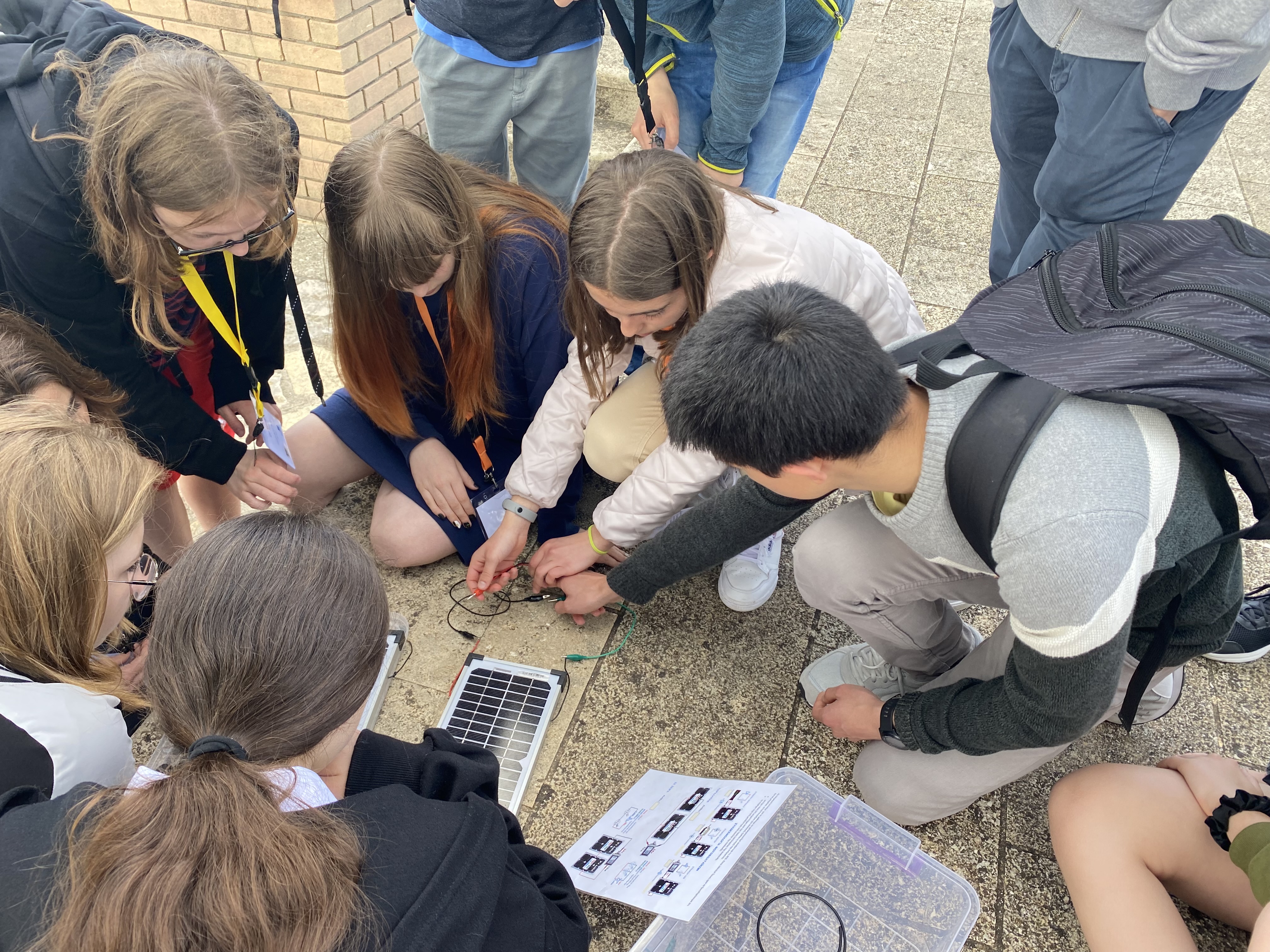
Topic(s) addressed
Through project participation, students honed essential skills including entrepreneurship, coding and programming, and robotics. They also engaged with advanced technologies like 3D printing and virtual reality during various learning, teaching and training activities.
Target group(s)
The participants included students between the ages of 14 and 19 who attended the science and technology course.
Methodologies
We employed a project-based learning approach to address environmental issues, requiring students to apply knowledge from various fields, especially STEAM disciplines. They collaboratively developed projects in an informal setting, utilising technology for building and programming diverse robots. We ensured the inclusion of students facing learning challenges due to socio-economic disparities and upheld gender equality. This approach empowered students to become active, responsible learners, equipped with 21st-century skills.
Innovation environment
Partner-led activities occurred in the ecoclub and robolab spaces, which differ from traditional classrooms, offering resources for active learning. Students formed teams, enhancing creativity, critical thinking, and scientific knowledge, with a focus on recyclable materials when possible.
Teachers’ role
The teachers played a crucial role as process leaders in shaping innovative teaching and learning approaches. They facilitated the activity spaces, designed challenges, and organized study visits to address ecological and energy issues. They also conducted workshops on robot construction and programming. Throughout the project, teachers closely supervised students, offering guidance, clarification, and improvement suggestions. This initiative promotes further collaboration among teachers across various STEM disciplines.
Impact and output
This project has significantly impacted students and educators. Eco-clubs and Robolabs in partner schools empowered students in various STEM disciplines. Teachers adopted project-based learning, nurturing 21st-century skills in students. The project's impact goes beyond the classroom, motivating students to address environmental issues and apply their skills for positive change.
- Reference
- 2019-1-PT01-KA229-060800
- Project locations
- Portugal
- Project category
- Secondary education
- Project year
- 2023
Stakeholders
Coordinators
Instituto N.ª Sra. da Encarnação - Cooperativa de Ensino
- Address
- Portugal
Participants
Zespol Szkolno-Przedszkolny Nr 6 w Rzeszowie
- Address
- Poland
Kuressaare Gümnaasium
- Address
- Estonia
Kabazli Sehit Ismail Yavuz Ortaokulu
- Address
- Türkiye
Gymnasium Lefkimmis
- Address
- Greece
Austrumlatvijas Tehnologiju Vidusskola
- Address
- Latvia
